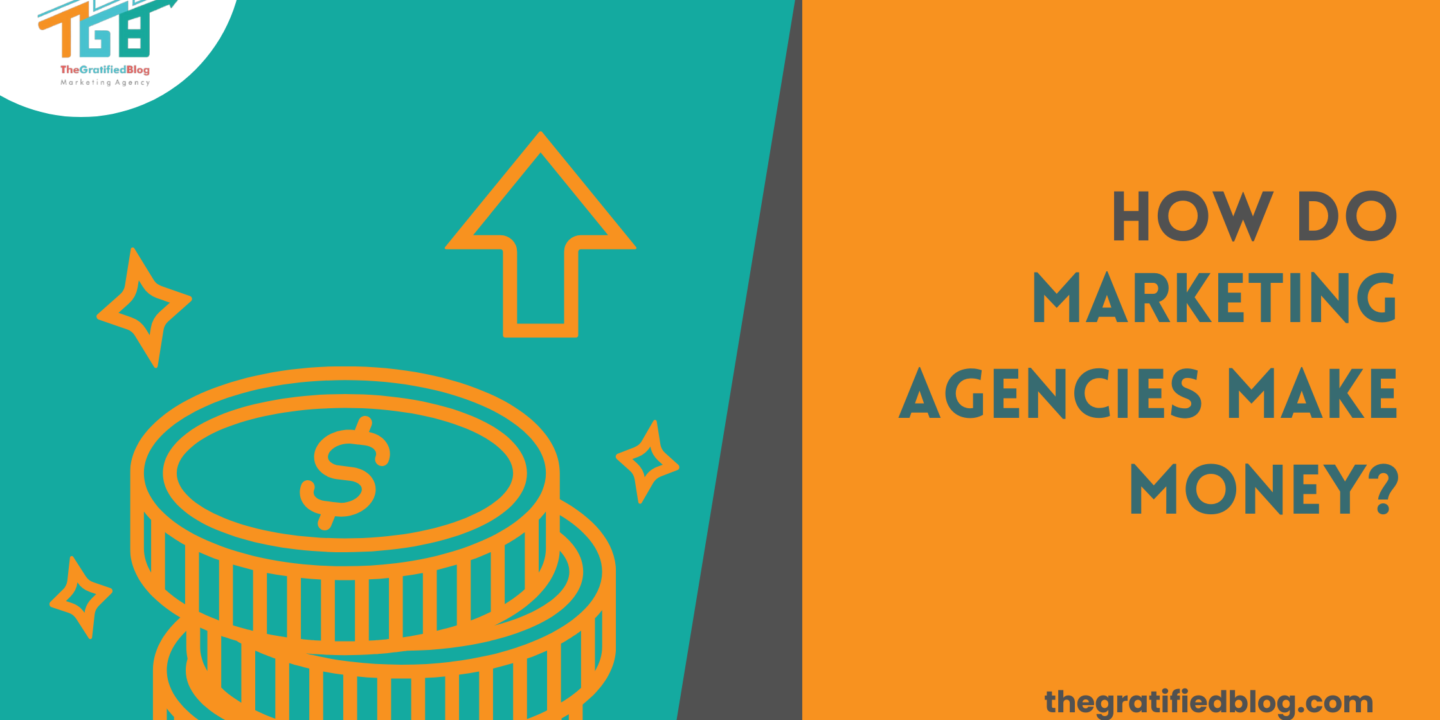
Welcome to our comprehensive exploration into the world of marketing agencies and the fundamental question: “How do marketing agencies make money?” This insightful blog will explore the diverse revenue streams and effective strategies that propel marketing agencies toward financial success.
Join us on this journey as we navigate the landscape of client retention, excellence in service delivery, and the critical role of tracking and analyzing marketing efforts. If you’ve ever wondered about the financial workings of marketing agencies, you’re in the right place.
Let’s explore together and gain valuable insights into the strategies that drive success in this dynamic industry.
The diverse revenue streams of marketing agencies
Marketing agencies deploy various revenue streams to sustain operations and thrive competitively. These revenue streams encompass a spectrum of services and models that cater to clients’ diverse needs. Some of them are as follows:
- Retainer Fees
- Project-Based Fees
- Performance-Based Models
- Subscription-Based Services
- Hourly Billing
- Licensing and Royalties
- Training and Workshops
In the forthcoming sections, let’s delve into each aspect of the revenue stream and the strategies marketing agencies employ to maximize their profitability.
How Do Marketing Agencies Make Money: Unveiling 7 Essential Revenue Streams

Retainer Model
Retainer fees are a vital way for marketing agencies to make money. In simple terms, it’s like having a subscription for ongoing services. Clients pay a fixed amount of money regularly, such as monthly or yearly, to the marketing agency. This consistent payment ensures the agency has a steady and reliable income, essential for effectively planning and managing their business.
Imagine you have a favorite streaming service you pay for monthly to access movies and shows. Retainer fees work similarly. Clients pay the marketing agency a set amount, and in return, they receive continuous services. These services include developing and maintaining marketing strategies, managing brands, or providing ongoing advice and support.
For the marketing agency, having a steady cash flow through retainer fees allows them to focus on delivering quality services without worrying too much about financial ups and downs. Having a stable income source helps them better plan and allocate their resources. This model benefits the agency and client, creating a reliable, ongoing partnership.
Project-Based Model
Project-based fees are another way marketing agencies earn money, like paying for a specific task or job. Instead of a regular subscription, clients pay the agency for a particular project they want to do. Imagine you want a custom-made birthday cake; you would pay the baker a set amount for creating that cake. In the same way, clients pay marketing agencies a fixed amount for tasks like creating a marketing campaign, designing a website, or launching a new product.
The cool thing about project-based fees is that they offer flexibility. Clients get to decide which specific projects they want the agency to handle, and they only pay for those particular services. It’s like ordering a la carte from a menu—you choose what you want and pay for what you’ve selected.
For agencies, this model allows them to showcase their skills on a variety of different projects. They can tailor their approach to meet the distinctive requirements, providing specialized services for specific tasks. This flexibility benefits clients and agencies by ensuring that clients only pay for the services they need, making it a win-win situation.
Performance-Based Model
Performance-based models in marketing are like a win-win arrangement for both the agency and the client. Instead of just getting paid a fixed amount upfront, some agencies tie their earnings to how well the marketing campaigns perform. Picture it like a sports coach who earns a bonus based on how many games the team wins. Similarly, marketing agencies earn commissions or bonuses when their campaigns achieve successful results.
So, let’s break it down. When a client hires a marketing agency using a performance-based model, the agency’s income is directly linked to the success of the marketing efforts. The agency gets rewarded with additional earnings if the campaign leads to more sales, increased brand visibility, or any other agreed-upon goals. This approach aligns the agency’s goals with the client’s objectives, creating a partnership where both parties are motivated to achieve the best possible results.
For clients, it means they’re not just paying for the effort put into the campaign but for actual results. It assures the agency that it is fully invested in creating impactful and successful marketing strategies. In essence, the client’s success becomes the agency’s success, making it a collaborative and mutually beneficial relationship.
Subscription-Based Model
Subscription-based services in the realm of marketing operate much like your subscriptions to streaming services or magazines. Simply put, clients and marketing agencies enter into an ongoing arrangement instead of paying for individual services each time. This model has gained popularity, especially with the surge in digital marketing activities.
So, imagine you love watching movies, and you subscribe to a streaming service. You pay a fixed amount regularly, like every month, to access various films and shows. Similarly, in marketing, clients subscribe to agencies for continuous services. These services could include content creation, managing social media accounts, or optimizing the website for search engines (SEO).
The benefit for clients is that they have a reliable team consistently working on their marketing needs without the hassle of negotiating for each task separately. For agencies, it means a steady and predictable income, allowing them to plan resources efficiently. It’s like having a reliable partnership where both parties know what to expect, fostering a long-term relationship based on consistent support and collaboration.
Hourly Based Model
Hourly billing is a straightforward and common way for marketing agencies to charge for their time and expertise. Simply put, it’s like paying for the time a service is provided, much like hiring a plumber or an electrician who charges by the hour.
When marketing agencies use hourly billing, they keep track of the hours they spend working on specific tasks, whether consulting, creating designs, or developing strategies. Clients then pay for the actual hours worked. This approach provides transparency in pricing because clients see a clear breakdown of where their money is going – it’s like paying for the time and effort the agency puts into their project.
Hourly billing is often used for consulting or specialized services where the scope of work might vary, and it’s challenging to determine a fixed price upfront. It ensures that clients compensate the agency fairly for the time and expertise invested in their project. It’s like paying for the precise amount of professional time and attention your project requires, offering flexibility for both the agency and the client.
Licensing And Royalties-Based Model
Licensing and royalties in marketing are a bit like when musicians earn money from their songs being used in movies or commercials. In the marketing world, agencies can generate income by allowing others to use their intellectual property, like unique branding elements or special marketing tools they’ve created.
Let’s break it down. When a marketing agency develops something unique, like a catchy jingle, a distinct logo, or a unique software tool for marketing, they can license it to others. Licensing is like giving someone permission to use their creation for a fee. It’s similar to renting a movie – you pay to use it but don’t own it.
Now, the agency needs to get a one-time payment for this. They may also receive royalties. Royalties are like ongoing payments based on how much their creation is used. So, every time someone uses their particular branding element in an ad or their unique marketing tool for a campaign, the agency gets a little extra income. It’s a way for agencies to keep earning from their creative work over time, creating a steady flow of revenue alongside their other services.
Training And Workshops Based Model
Training and workshops in marketing are like when a skilled chef teaches a cooking class or a fitness trainer leads an exercise workshop. Simply put, some marketing agencies diversify their income by sharing their expertise with others. Instead of only providing services directly to clients, they offer training sessions, workshops, or educational programs.
Imagine you have a friend who is good at playing the guitar, and they decide to teach others how to play. Similarly, marketing agencies with a wealth of knowledge in areas like social media, branding, or advertising may choose to share their skills. They organize sessions where they teach clients, industry professionals, or even the public about effective marketing strategies, the latest trends, or how to use specific tools.
These training sessions not only contribute to the agency’s income, as participants pay to learn from their expertise, but they also help establish the agency as a leader in the field. It’s like becoming known as the go-to chef for delicious recipes or the expert fitness trainer for effective workouts. By sharing their knowledge, marketing agencies earn money and build a reputation as thought leaders, showcasing their authority and proficiency in the ever-evolving marketing world.
Conclusion: The Financial Success Of Marketing Agencies
In summary, the financial success of marketing agencies stems from diverse revenue streams and effective strategies. Through these strategies, agencies attract potential clients and position themselves as industry experts, fostering long-term client relationships.
However, Client retention is pivotal for maximizing profits, with agencies gaining repeat business and potential referrals through consistently delivering excellent results and customer service.
Lastly, tracking and analyzing marketing efforts are crucial for resource optimization and increased profitability. Agencies must measure the success of various campaigns and strategies to identify what works best for them.
If you have any further questions regarding the blog, please feel free to leave them in the comment section below, and we’ll be delighted to provide answers.
Thanks for reading 🙂








No Comments